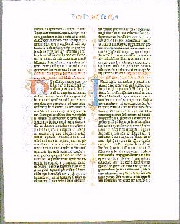Luther at the Wartburg (1521/22)
Luther as Junker Jörg at the Wartburg
On May 4, 1521 Elector Friedrich the Wise allowed Luther to be brought to the Wartburg near Eisenach. The powerful Elector hoped that taking Luther out of the limelight would weaken the constant attacks against the Reformation.
Luther lived incognito at the Wartburg; he called himself Junker Jörg (Knight George) and "grew his hair and a beard."
Luther suffered from the exile "in the empire of outlaws" and complained of various physical ailments. In addition the many fights with Satan, recounted both by himself and friends, like the proverbial Throwing of the Inkwell must have been difficult times for him to work through...

Translation of the New Testament
Luther devoted himself to a new task. He translated the New Testament from its original Greek into German within eleven weeks; the work was later edited by Melanchthon and other specialists and printed in 1522. This so-called "September Testament" was tremendously popular in Protestant areas and as a result made a large contribution to the development of a standardized written German-language.
Later, parts of the Old Testament were also translated. In 1534, a complete German language Bible was printed and also had a large circulation.
Happenings in Wittenberg during Luther's Absence
Reformation theories were put into practice in Wittenberg which had become the center of the Reformation. In protest, three priests married in 1521 and the worship service was also altered. Luther watched these changes favorably from a distance, however, he stayed in close contact with his supporters in Wittenberg through letters.
It is important to emphasize the influence of Philipp Melanchthon and his work "Loci communes" (1521) which was the first formulation of Luther's teachings and was also a foundation for the theological works of the Reformation.
In 1522, Luther returned to Wittenberg when the more radical functions of the Reformation appeared to have gained control (such as the iconoclastic movement under Andreas Bodenstein, aka Karlstadt).